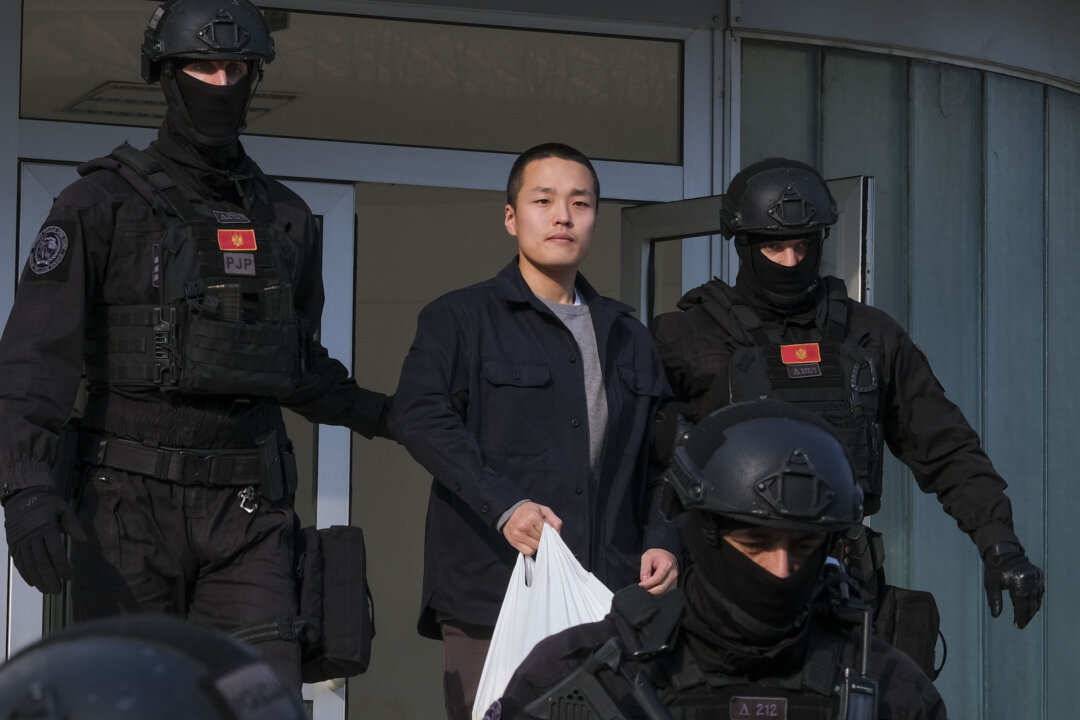A New York jury in April had found Do Kwon of South Korea liable for fraud in relation to the 2022 ‘cryptocrash.’
Do Kwon, a South Korean entrepreneur accused of orchestrating a cryptocurrency crash that wiped out $40 billion in investor funds, has been extradited to the United States from Montenegro.
A New York jury had found him guilty of fraud in April.
The co-founder of Terraform Labs had been on the run since 2022, following the catastrophic crash of his TerraUSD stablecoin and its sister token, Luna.
On Tuesday, Montenegrin authorities handed Kwon over to FBI officials at an airport in Podgorica, the Balkan nation’s capital.
“Today Montenegro completed the extradition of Do Kwon to the United States to face charges in the Terra/Luna case,” Montenegrin Prime Minister Milojko Spajić announced on X after the handover.
“Our nation welcomes innovation and legitimate crypto, AI, and other tech entrepreneurs, but we have zero tolerance for fraud This extradition demonstrates our unwavering commitment to international justice and the rule of law!”
Extraction Battle
The extradition marks the end of a months-long standoff between competing extradition demands by the United States and South Korea.
Kwon fled his home country in 2022 after Seoul issued a warrant for his arrest. He eventually surfaced in Montenegro, where he was arrested in 2023 while attempting to board a plane to Dubai using a forged passport.
Neither the United States nor South Korea has a formal extradition treaty with Montenegro, which led to months of legal wrangling. Kwon’s defense had tried to push for extradition to South Korea, where penalties are less severe.
Initially, a Montenegrin court ruled in August 2024 to extradite Kwon to South Korea. That decision was later overturned, paving the way for his transfer to the United States.
The Crypto Crash
Terraform Labs gained prominence in 2021, attracting a dedicated group of investors who called themselves “Lunatics” and hailed Kwon as their “king.”
The company’s rise came to a crashing halt on May 7, 2022, when TerraUSD, which is supposedly pegged to the U.S. dollar through an algorithmic mechanism designed to stabilize the coin’s value by adjusting its supply, began to falter.
In 48 hours, a massive wave of withdrawals totaling more than $2 billion caused TerraUSD to lose its parity with the dollar. This set off a disastrous feedback loop. As TerraUSD’s value plummeted, the algorithmic system generated more Luna tokens, driving the value of both coins to zero.
The crash triggered panic among investors, who scrambled to withdraw funds from other cryptocurrencies, leading to widespread selloffs across the entire crypto market.
Dubbed the “cryptocrash,” the collapse is estimated to have cost investors $40 billion.
Federal prosecutors in New York subsequently charged Kwon, who held a 92 percent stake in Terraform, with securities fraud, accusing him of misleading investors about the stability of the crypto assets.
In April, a seven-person Manhattan jury found Terraform and Do Kwon liable for fraud. The verdict handed the U.S. Securities and Exchange Commission (SEC) a boost in its efforts to tighten regulation of the cryptocurrency industry.
“For all of crypto’s promises, the lack of registration and compliance have very real consequences for real people,” Gurbir Grewal, the SEC’s enforcement director, said in a statement at that time.
“As the hard work of our team shows, we will continue to use the tools at our disposal to protect the investing public, but it is high time for the crypto markets to come into compliance.”

